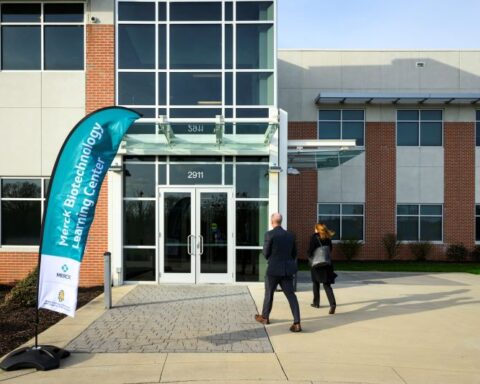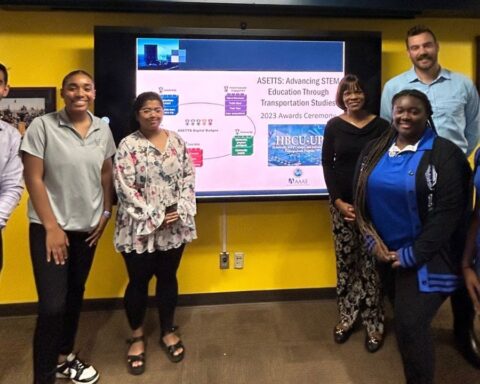Courtesy of North Carolina A&T State University
The National Institute of Diabetes and Digestive and Kidney Diseases (NIDDK) – part of the National Institutes of Health (NIH) – has awarded $4 million to support a collaboration across the Nutrition Obesity Research Center (NORC) at the University of North Carolina Gillings School of Global Public Health and the North Carolina Diabetes Research Center (NCDRC) that will provide career advancement for nutrition, obesity and diabetes researchers from underrepresented minority groups, and ultimately, diversify the research workforce dedicated to investigating these chronic diseases.
The grant will help to establish the North Carolina Consortium for Diversity Career Development in Nutrition, Obesity, and Diabetes Research.
The consortium, a five-year collaboration between the UNC NORC and the NCDRC, will be co-led by Elimelda Moige Ongeri, Ph.D., professor and dean of the John R. and Kathy R. Hairston College of Health and Human Sciences at North Carolina Agricultural and Technical State University, and Elizabeth Mayer Davis, Ph.D., Cary C. Boshamer Distinguished Professor of Nutrition and Medicine at the Gillings School.
It will support 20 researchers from six institutions across the state: Duke University, N.C. A&T, North Carolina Central University, the University of North Carolina at Chapel Hill, Wake Forest University, and Winston-Salem State University.
“This award is great for the state of North Carolina,” said Ongeri. “The new mentoring consortium builds on existing regional partnerships that optimize utilization of resources and expertise.
“A diverse workforce significantly impacts research efforts in chronic disease conditions that disproportionately burden minority communities and will contribute to alleviating health disparities and building healthier communities,” she said. “I am really excited to be part of the leadership.”
The consortium’s cohorts will include postdoctoral scholars and early-career faculty who conduct research in nutrition, obesity, diabetes, and related conditions. Each researcher will be paired with a dedicated mentor and a mentoring team and have access to professional development programs to enhance their research and competitiveness with NIH grant proposal development. The consortium will also provide Pilot and Feasibility Program funding to investigators from across the consortium.
“I’m excited and honored to be part of this collaboration because here in North Carolina, we have many communities at very high risk for diseases like diabetes that are the topic of research by the program trainees,” said Mayer-Davis. “Having funding to provide a solid start to the careers of bright, talented new investigators will be immensely helpful so that we can more quickly improve health care in the state of North Carolina.”
Building on the existing systems for success within these six institutions and with support from NIDDK, the consortium will enhance the diversity of the research workforce and prepare scholars to make substantial scientific contributions to the field of nutrition for years to come.
The consortium launches this month and will run until July 2027. The N.C. consortium is one of three programs funded by the NIDDK under this new mentoring initiative.





